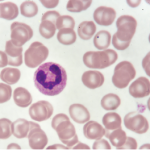Neutrophil extracellular traps (NETs) contribute to the pathogenesis of multiple autoimmune diseases. And research has shown that patients with antiphospholipid syndrome (APS) have higher levels of circulating anti-NET antibodies than healthy controls, indicating a potential biomarker.




